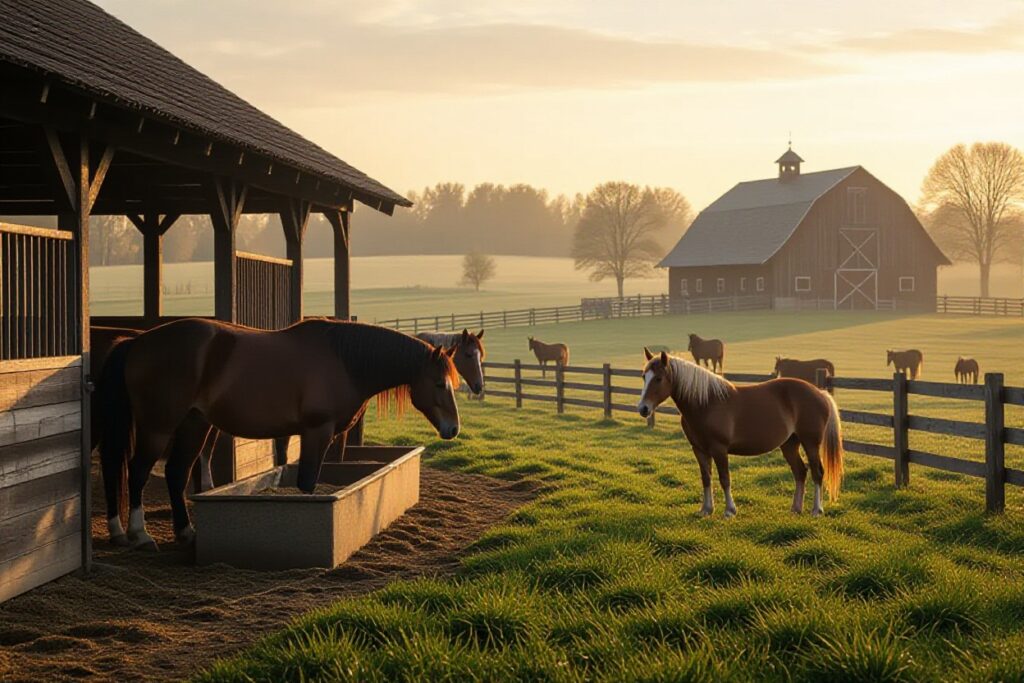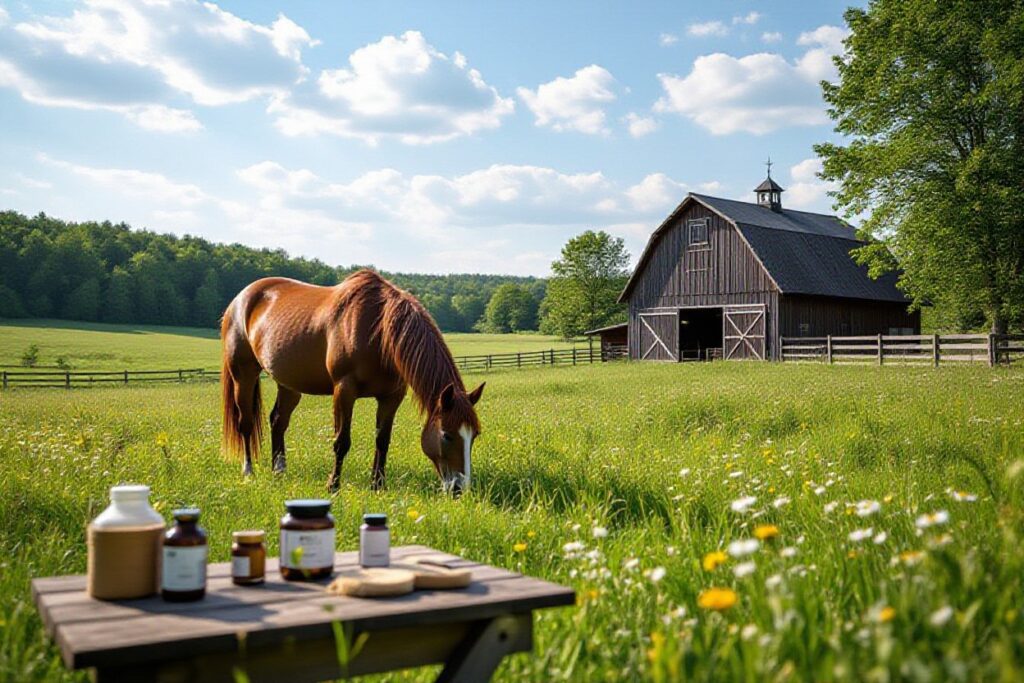It’s crucial to consider the ethical implications when engaging in horse breeding. From selective breeding to genetic diversity, you face significant challenges that can impact the health and welfare of horses. Understanding these ethical considerations is important for anyone involved in breeding horses, ensuring responsibility and compassion in the process.
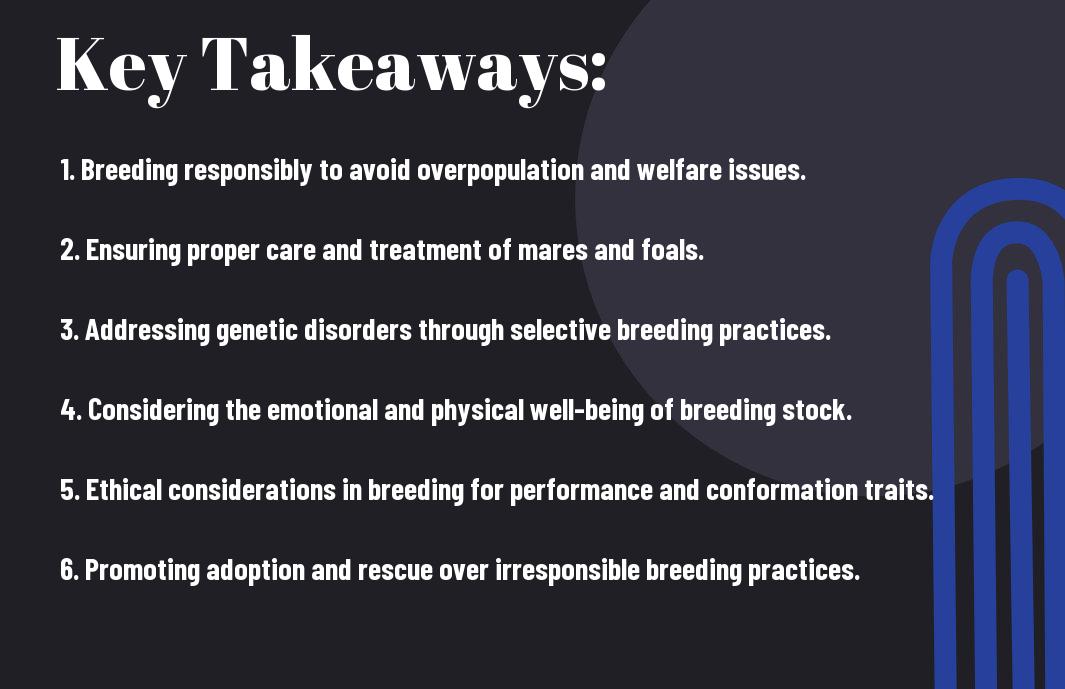
The Complexity of Horse Breeding
Genetic Diversity and Selective Breeding
One of the key challenges in horse breeding is maintaining genetic diversity while implementing selective breeding practices to improve desirable traits. The genetic makeup of a population is crucial for the overall health and resilience of the breed. When selective breeding is too narrow, there is a risk of reducing the gene pool, leading to an increase in genetic disorders and a decrease in overall fitness.
The Role of Human Intervention in Breeding
For centuries, humans have played a significant role in shaping the characteristics of horse breeds through selective breeding. While this human intervention has led to the development of specific traits for different purposes, it has also raised ethical concerns regarding the exploitation and manipulation of animals for human benefits.
Genetic modifications and artificial insemination are common practices in horse breeding, allowing breeders to control the traits and characteristics of the offspring. While these techniques can help improve the overall quality of the breed, they also raise questions about the limits of human intervention in altering the natural course of evolution.
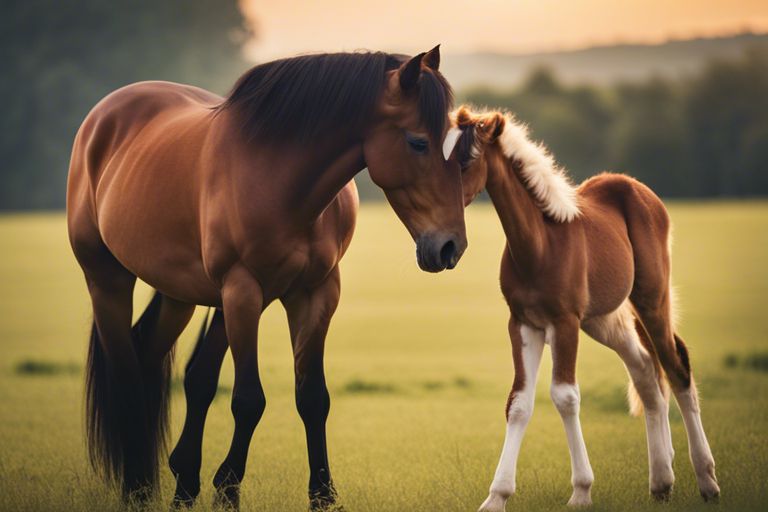
Welfare Concerns
Some of the most critical aspects of horse breeding revolve around the welfare of the animals involved. Breeding can pose several challenges to the health and well-being of horses.
Health Risks Associated with Breeding
Risks such as difficult births, known as dystocia, can endanger both the mare and the foal. Breeding can also lead to genetic issues being passed down if not carefully monitored, potentially resulting in offspring with health problems.
Living Conditions and Quality of Life
Life as a breeding horse can vary greatly depending on the operation. Some breeding facilities may prioritize profit over the well-being of the animals, leading to overcrowded or unsanitary conditions. On the other hand, reputable breeders prioritize the health and comfort of their horses, providing spacious pastures and proper care.
This is a crucial consideration when choosing where to breed your horse. A reputable breeder will ensure that the animals have access to clean water, adequate food, and shelter, promoting a higher quality of life for both the breeding stock and their progeny.
Treatment and Handling of Breeding Stock
Welfare of the breeding stock is paramount in ensuring ethical breeding practices. Improper handling or mistreatment of breeding horses can lead to stress and behavioral issues, impacting the health and reproductive success of the animals.
Quality breeders prioritize gentle and respectful treatment of their horses, promoting trust and reducing the risks of injury or trauma during breeding activities. By choosing a breeder that values the well-being of their animals, you can ensure a more ethical and responsible breeding experience for your horse.

Ethical Dilemmas
The Morality of Breeding for Specific Traits
Dilemmas arise when you consider the morality of breeding horses for specific traits. While it may be tempting to breed for characteristics that are aesthetically pleasing or that excel in performance, this can lead to ethical concerns. By prioritizing certain traits, you may inadvertently perpetuate genetic disorders or compromise the overall health of the animal.
The Impact of Breeding on Horse Behavior and Well-being
To address the impact of breeding on horse behavior and well-being, it is vital to recognize that breeding solely for physical attributes can neglect the importance of temperament and natural behaviors. When breeders focus solely on appearance or performance, they may disregard the mental and emotional well-being of the horse, leading to potential issues such as anxiety, stereotypic behaviors, or even aggression.
Breeding programs that prioritize the overall well-being of the animal by considering both physical traits and behavioral characteristics can help produce healthier and more temperamentally sound horses.
The Responsibility of Breeders towards Their Animals
Breeders have a responsibility towards their animals to ensure that they are bred ethically and with consideration for their well-being. This involves not only selecting for desirable traits but also providing proper care, socialization, and training to ensure the horses have the best quality of life possible.
Plus, it is crucial for breeders to stay informed about current best practices in animal welfare and to continually strive to improve their breeding programs to prioritize the health and happiness of their horses.
Industry Pressures and Conflicts
Economic Incentives vs. Ethical Considerations
Now, as a horse breeder, you face a continuous struggle between economic incentives and ethical considerations. The pressure to produce winning horses for lucrative competitions often conflicts with the ethical responsibility to ensure the health and well-being of the animals under your care.
The Influence of Competition and Market Demand
To meet the demands of a competitive market, breeders may resort to practices that prioritize profit over the welfare of the horses. Any breeder can attest to the tension between adhering to high ethical standards and succumbing to the pressures of producing horses that align with current market trends and performance expectations.
A shift in market demand for certain traits or disciplines can lead breeders to make difficult decisions that may compromise the well-being of the animals. The desire to capitalize on popular trends can inadvertently lead to the neglect of necessary welfare considerations.
Balancing Profit with Animal Welfare
Ethical dilemmas often arise when deciding between maximizing profit margins and safeguarding the welfare of your horses. It’s crucial to find a balance that allows you to operate a successful breeding business while upholding ethical standards and ensuring the horses’ quality of life.
With careful planning and consideration, you can navigate the challenges posed by industry pressures and conflicts, making conscientious choices that prioritize the well-being of the horses in your care.
Regulatory Challenges
For horse breeding, regulatory challenges pose significant obstacles to ensuring ethical practices are followed. One of the primary issues is the lack of standardization and oversight in the industry.
Lack of Standardization and Oversight
An absence of uniform guidelines and oversight bodies means that breeding practices can vary widely. This lack of consistency opens the door to unethical behavior such as inbreeding, overbreeding, or inadequate care for breeding animals. Without clear regulations and enforcement mechanisms, it becomes difficult to hold breeders accountable for their actions.
Enforcing Ethical Standards in Breeding Practices
Regulatory bodies face challenges in enforcing ethical standards in breeding practices. While there may be guidelines in place, the issue lies in ensuring compliance across a diverse industry. **Strong enforcement** mechanisms, such as regular inspections, penalties for non-compliance, and transparent reporting, are necessary to uphold ethical standards in horse breeding.
Understanding the complexities of breeding horses ethically requires a collaborative effort between breeders, regulatory bodies, and industry stakeholders. By working together, **significant progress** can be made in promoting responsible breeding practices and safeguarding the welfare of horses.
International Cooperation and Consensus
Regulatory challenges extend beyond national borders, highlighting the need for international cooperation and consensus on ethical breeding practices. **Standardizing guidelines** and regulations on a global scale can help prevent practices like the illegal trade of horses, exploitation of breeding animals, and unethical genetic manipulations.
This collaborative approach not only **enhances** the overall welfare of horses but also fosters trust and credibility within the horse breeding community. By establishing **universal standards** and promoting ethical conduct, the industry can move towards a more sustainable and humane future for equine breeding practices.
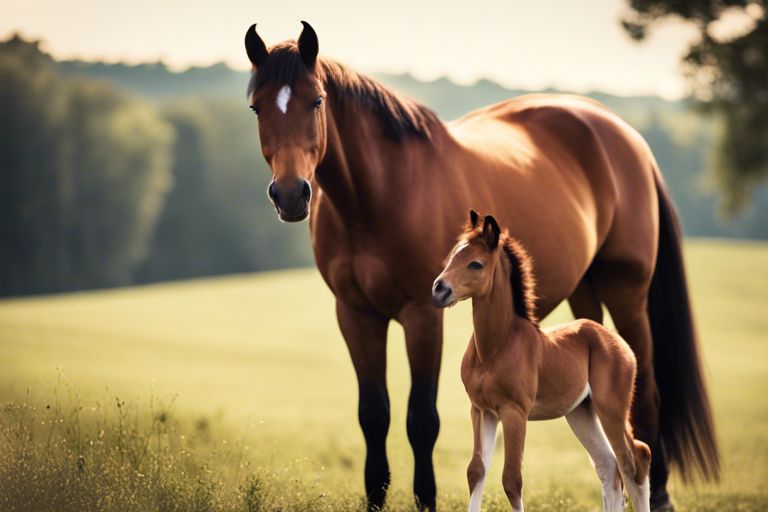
Alternative Approaches
Sustainable and Humane Breeding Practices
After examining the ethical challenges in horse breeding, you may be wondering about alternative approaches that prioritize sustainability and humane practices. Sustainable and humane breeding practices focus on the well-being of the horses, ensuring that their physical and mental health are prioritized throughout the breeding process. This approach includes ample turnout time, proper nutrition, access to veterinary care, and breeding for traits that promote a strong and healthy horse.
Genetic Research and Its Applications
Breeding On the foundations of genetic research opens up possibilities for improving horse health and welfare. Genetic research allows breeders to identify and eliminate hereditary diseases, predict genetic traits, and make informed breeding decisions. By using technologies like DNA testing, breeders can reduce the risk of passing on genetic disorders and promote overall horse well-being.
Breeding for Functionality and Versatility
One of the key aspects of ethical horse breeding is focusing on breeding for functionality and versatility. By prioritizing these traits, breeders can Research and develop horses that are well-suited for various disciplines and activities. This approach ensures that horses are bred not just for appearance but for their ability to perform tasks effectively and adapt to different riding or working environments.
To wrap up
Now, as you reflect on the ethical considerations discussed in this article about horse breeding, you may feel a sense of responsibility towards the welfare of these animals. It is necessary to consider the impact of our actions on these majestic creatures and ensure that ethical standards are upheld throughout the breeding process. By being informed and making conscious choices, you can contribute to the well-being of horses and help shape a more ethical future for the industry.
Be mindful of, each decision you make as a breeder or consumer has the potential to make a difference in the lives of these animals. By prioritizing their health, happiness, and overall well-being, you can play a role in promoting ethical practices within the horse breeding community. Let us strive to create a more compassionate and respectful environment for these magnificent animals, where their best interests are always at the forefront of our actions.
Q: What are some ethical considerations in horse breeding?
A: Some ethical considerations in horse breeding include ensuring the well-being of the mare and foal, avoiding inbreeding to prevent genetic disorders, and providing proper care and training for the horses throughout their lives.
Q: How can inbreeding impact the health of horses?
A: Inbreeding can increase the likelihood of genetic disorders and health issues in horses. It can also reduce genetic diversity, making the population more vulnerable to diseases and limiting the overall quality of the breed.
Q: What are some ways to improve the ethical standards in horse breeding practices?
A: Some ways to improve ethical standards in horse breeding include conducting thorough genetic screenings, implementing breeding programs that prioritize health and welfare over aesthetics, and promoting transparency in breeding practices.
Q: How can breeders ensure the well-being of the horses involved in breeding programs?
A: Breeders can ensure the well-being of the horses by providing proper nutrition, veterinary care, and living conditions. They should also prioritize the physical and mental health of the horses over breeding goals and profitability.
Q: What role do regulatory bodies play in monitoring and enforcing ethical standards in horse breeding?
A: Regulatory bodies play a crucial role in monitoring and enforcing ethical standards in horse breeding. They set guidelines and regulations for breeding practices, conduct inspections, and impose penalties on breeders who violate ethical standards.


